Fastest glacier ever!
3 February 2014
Jakobshavn Isbræ meaning ‘Jakobshavn Glacier’ (pronounced ya-cub-shaw-ven) in Greenland is famous because it is the glacier that is believed to have produced the iceberg that sank the Titanic. But now, it has another claim to fame as being the fastest moving glacier ever recorded in Greenland or Antarctica. The glacier has always been fast – even in the 1990s it was considered to be one of the fastest moving glaciers in the world – but American and German scientists have confirmed that it is now moving at almost four times its previous speed! The scientists do this by looking at photographs taken by satellites on different days. By looking how much the glacier has moved between two days they can work out the speed it’s moving. In the summer of 2012, Ian Joughin and his team from the University of Washington measured the glacier’s speed at 46 metres per day – in other words, the glacier was travelling the length of about two tennis courts in just 24 hours! The speed of the glacier is highest in the summer because it is warmer, causing the exposed front of the glacier to melt faster. The ice at the front of the glacier normally holds the weight of the rest of the glacier back, but as the front melts rapidly the weight at the back is able to move the glacier with greater force, resulting in greater speeds. The speed the glacier is moving is very important because, as the glacier is moving and melting at faster speeds, it feeds more water into the oceans and raises sea levels across the world. As Ian explains: “We know that from 2000 to 2010 this glacier alone increased sea level by about 1 mm. With the additional speed it likely will contribute a bit more than this over the next decade.” Ian and his fellow scientists’ research is important because it helps us understand how much sea levels will rise in the future and whether this may affect people living in coastal areas.Print version
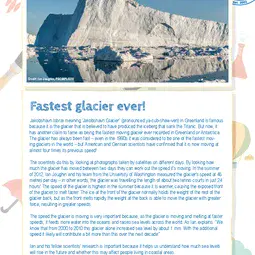
This is a kids' version of the EGU article: 'Fastest glacier ever!'. It was written by Jane Robb and reviewed for scientific content by Sam Illingworth and Timothy Lane and for educational content by Sally Dengg.
Translations
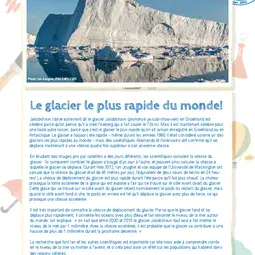
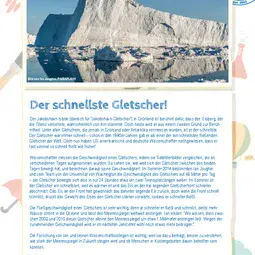
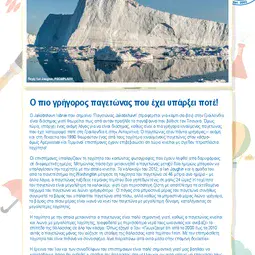
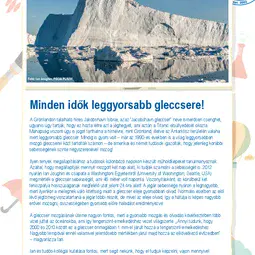
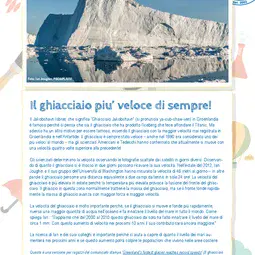
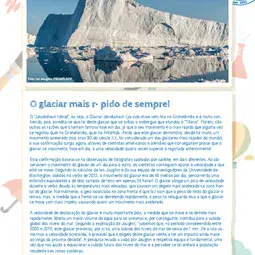
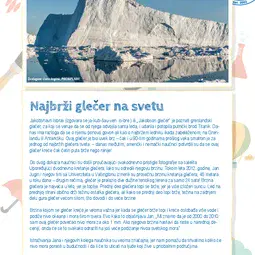
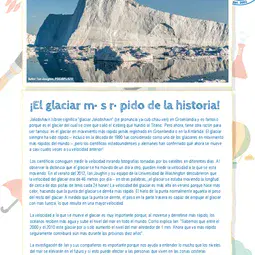
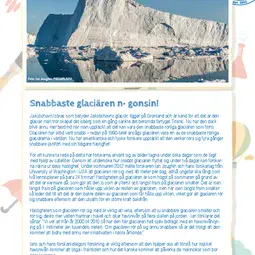
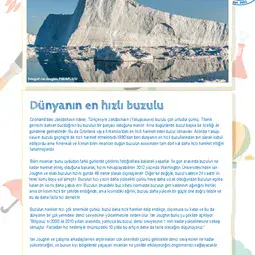
All English-language Planet Press releases are carefully edited, reviewed and proofed, by scientists, educators and EGU staff. Please note that once translated, Planet Press releases receive no further checks from EGU staff. For this reason, we cannot guarantee their accuracy, though we trust the quality of our voluntary translators and are grateful for their work.

